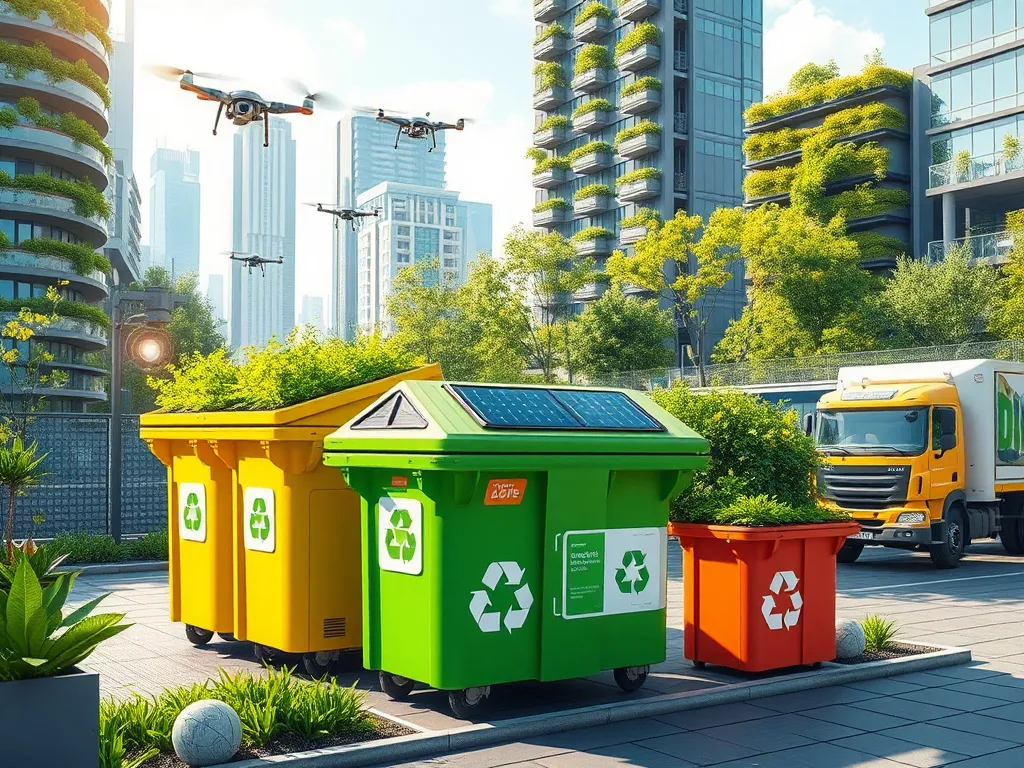Revolutionizing Waste Management: Innovations in Dumpster Rental

Innovations in Dumpster Rental and Waste Removal Technology
Innovations in dumpster rental and waste removal technology are transforming the way we manage waste. In an age where environmental concerns are at the forefront, new technologies are streamlining waste management processes, enhancing efficiency, and reducing the environmental footprint. These innovations are not only benefitting the providers of waste removal services but also offering convenience and sustainability to customers.
One of the most significant advancements in recent years has been the integration of smart technology into dumpster rental services. IoT-enabled monitoring systems allow for real-time tracking of waste levels in dumpsters, ensuring timely pickups and reducing the risks of overflowing containers. This smart approach enables waste removal companies to optimize their operations, ultimately leading to better service for their clients.
Furthermore, automated scheduling based on demand has become a game-changer. By utilizing AI algorithms, waste management companies can predict when and where waste will need to be collected, thus minimizing unnecessary trips and fuel consumption. This forward-thinking strategy not only saves time and money but also helps reduce vehicular emissions.
In addition to smart technology, there has been a significant push towards eco-friendly waste removal solutions. Innovations such as biodegradable dumpster liners and electric or hybrid waste collection trucks are being adopted to mitigate negative environmental impacts. These advancements highlight the industry’s commitment to sustainability, and they provide customers with greener options for waste disposal.
Mobile applications are also revolutionizing the waste management sector. User-friendly apps allow homeowners and businesses to book dumpster rentals, track pickups, and receive real-time notifications. This convenience promotes better engagement and feedback from users, leading to continuous service improvements and enhanced customer satisfaction.
Smart Dumpster Technology
Smart dumpster technology is at the forefront of innovations in dumpster rental and waste removal. IoT-enabled monitoring systems for waste levels offer real-time insights into the capacity and fill levels of dumpsters. This technology ensures that waste removal companies can manage their fleets effectively and prevent overflow situations.
Additionally, smart scheduling enhances the efficiency of waste pickups. By analyzing data trends and service request volumes, waste management companies can proactively schedule pickups based on demand, leading to a more responsive and efficient service.
Real-time tracking of dumpster locations is another pivotal feature of smart dumpster technology. Customers can know the location of their service, allowing for better planning and coordination during the waste removal process.
Exploring advancements in waste management technology reveals critical insights into sustainability, as outlined in the article https://d3.harvard.edu/platform-rctom/submission/the-internet-of-trash/.
Eco-Friendly Waste Removal Solutions
The industry is also witnessing a rise in eco-friendly waste removal solutions. Biodegradable dumpster liners are gaining popularity as they decompose naturally, reducing landfill waste and ecological footprints. This innovation aligns with the greater environmental movement advocating for sustainable practices.
Moreover, the use of electric and hybrid waste collection trucks significantly decreases carbon emissions associated with waste removal. These vehicles are quieter and more efficient, contributing positively to urban air quality and reducing the industry's reliance on fossil fuels.
Innovations in recycling processes are also noteworthy, with advancements in technology enabling more effective sorting and processing of recyclable materials. These innovations are essential for meeting the goals of zero waste and promoting a circular economy.
Mobile Applications in Waste Management
Mobile applications play a vital role in facilitating effective waste management. User-friendly apps make it easy for individuals and businesses to book dumpster rentals with just a few clicks. This convenience has led to increased accessibility for customers, allowing them to manage waste services with ease.
Real-time updates and notifications for pickups further enhance user experience. Customers are kept informed about the status of their service, reducing uncertainty and ensuring that waste removal occurs smoothly and on time.
Feedback and rating systems integrated into these applications provide waste management companies with valuable insights. Continuous feedback allows for service adjustments and improvements, fostering a more customer-centric approach in the industry.
Data Analytics for Efficient Waste Management
Data analytics is becoming a critical component in optimizing waste management operations. Predictive analytics helps companies understand waste generation trends, allowing them to anticipate demand and adjust services accordingly. This approach enhances operational efficiency and supports informed decision-making.
Optimizing routes for waste collection using data analytics can significantly reduce fuel consumption and operational costs. By analyzing traffic patterns and waste generation locations, companies can create more efficient collection routes that minimize environmental impact.
Data-driven decision-making contributes to service improvements. By leveraging insights derived from analytics, waste management companies can tailor their services to better meet the needs of their customers, promoting satisfaction and loyalty.
Automation in Waste Collection
Automation is rapidly becoming a key trend in waste collection, with robotic systems being developed for loading and unloading dumpsters. These systems improve efficiency and safety by reducing the need for manual labor, thereby streamlining operations.
Automated scheduling based on AI algorithms further enhances efficiency in service delivery. By accurately predicting the needs of customers, waste management companies can ensure that resources are allocated optimally, reducing redundancies and improving service quality.
Drones are also emerging as a practical solution for waste management in remote areas. These unmanned aerial vehicles can survey and collect data, enabling effective waste management solutions where traditional methods may face challenges.
